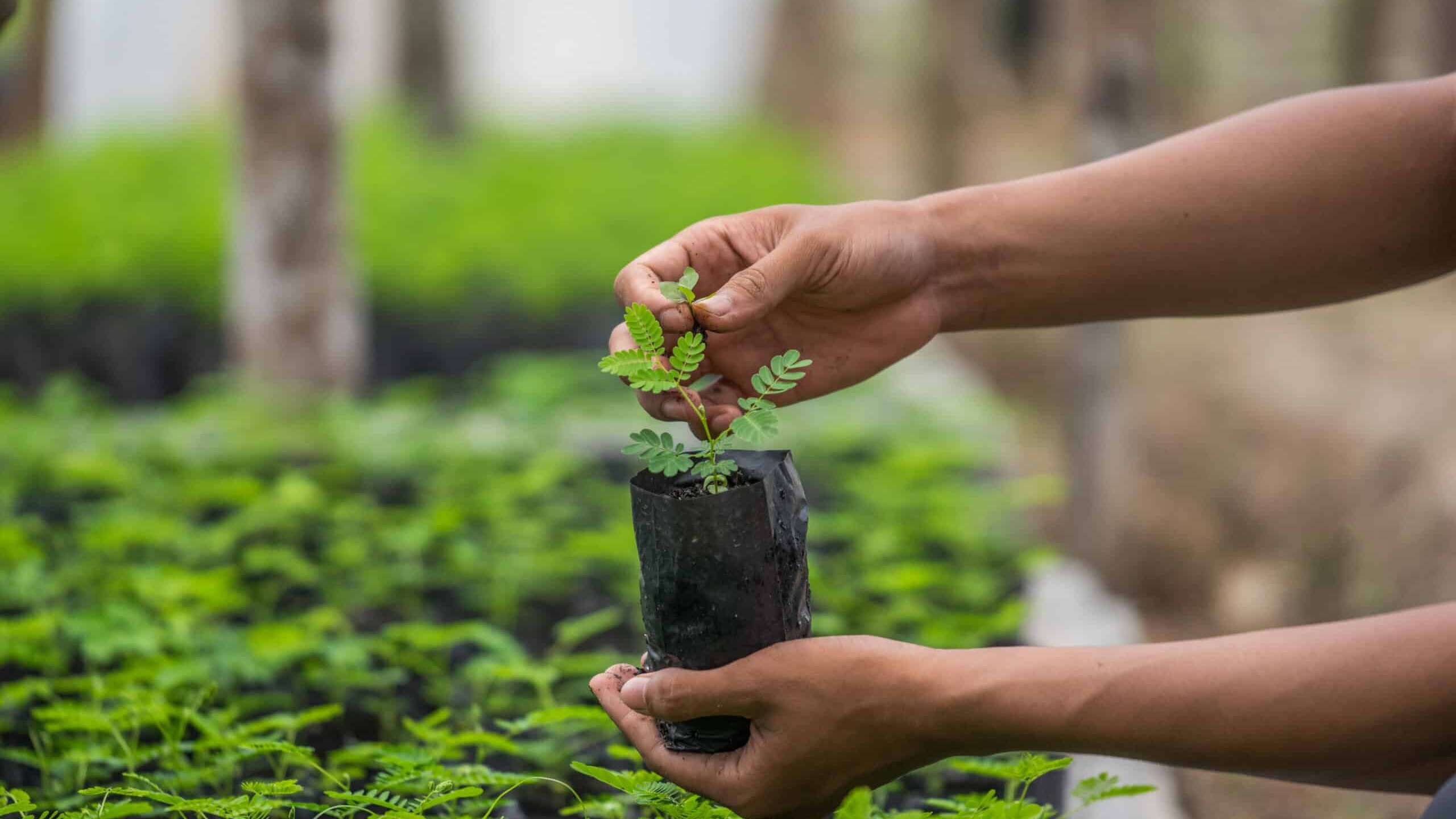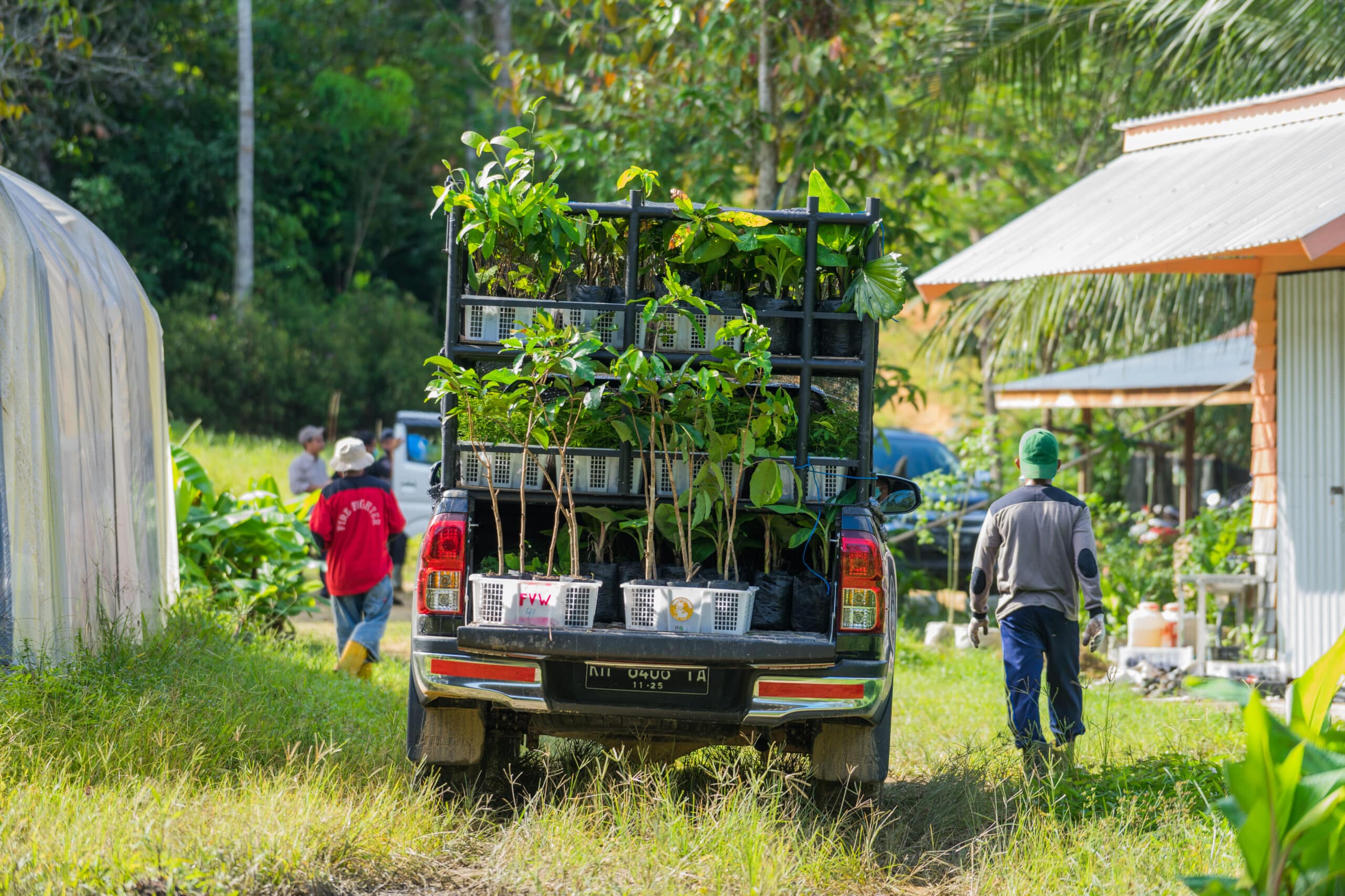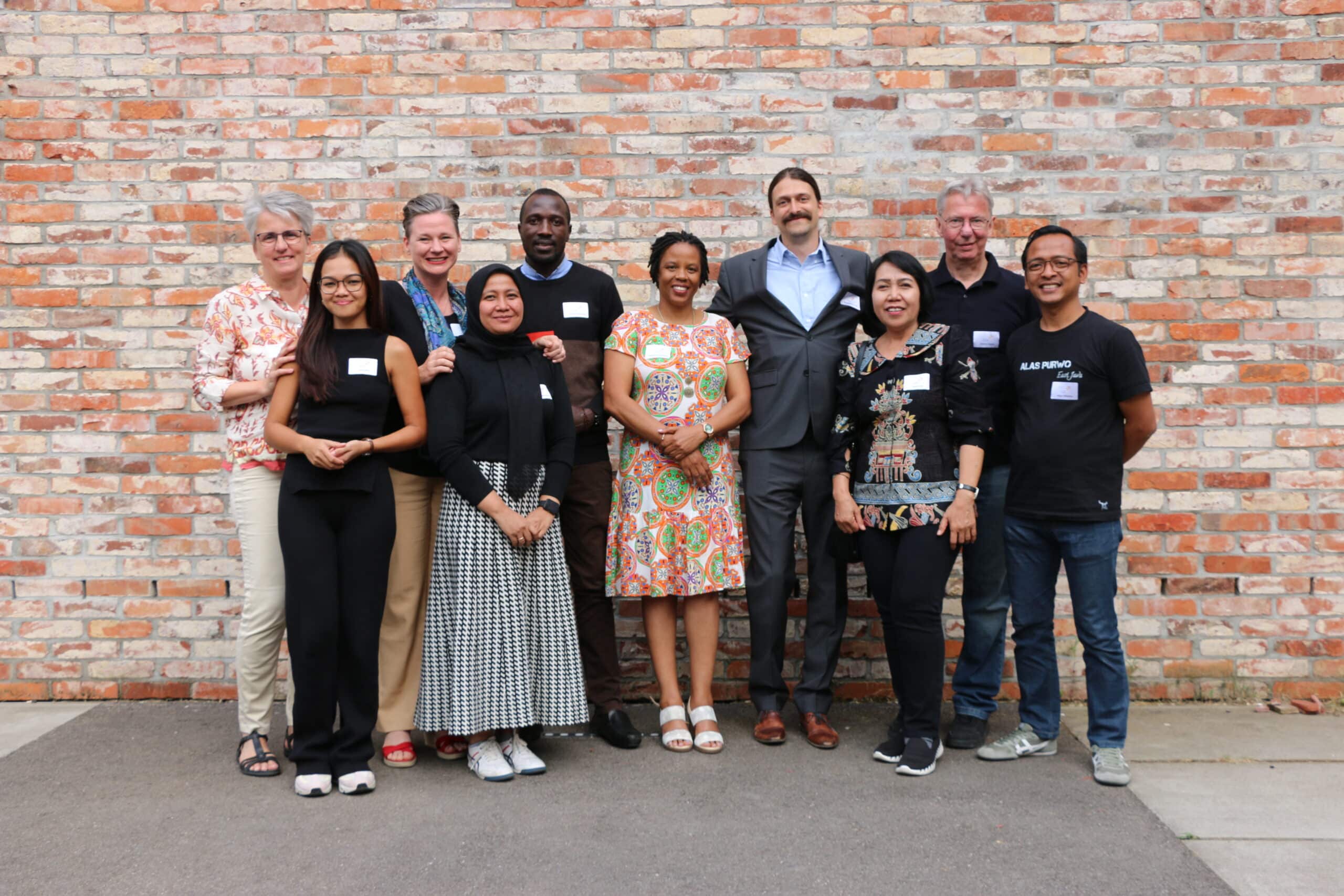
We have always valued transparency in our work. A transparent flow of information from the planting sites to us and from us to you means that everyone involved can make better decisions on the basis of comprehensive information. It means realistic expectations and gives us all the chance to react to developments with appropriate measures. In other words, transparent communication on all levels is the only way to implement qualitative projects.
In that spirit, we would like to share some recent findings and how we are going to address these. In late 2022, we conducted an evaluation of our first 7 years of work in Borneo, covering the time period 2014 to 2020, what we called “One Million Trees”. The results of the evaluation challenged some underlying assumptions at the core of our work.
1. If smallholder farmers in Central Kalimantan plant Sengon trees, the trees will grow quickly and on a level of quality that they can be sold to the timber processing industry
The evaluation showed us, unfortunately, that the seedling quality and trainings provided to farmers in the early years were not sufficient to prevent high mortality rates of seedlings during and after planting. We couldn’t ensure the growth of large numbers of qualitative logs that can be harvested now. We have realised that the trainings were insufficient and, in 2020, have introduced our farmer Field School, a training course with a fixed curriculum containing theoretical and practical lessons as well as knowledge testing. Through this, we have been able to increase the quality and consistency of the training and the plantings. In the future, we will also not only report on seedlings distributed. This metric only tells one part of the story. As soon as we are able to collect the data, we will report on standing trees 6 months after planting as well.
2. At scale, transportation of timber to Java will be costly, but leave enough profit for the farmers
A test harvest in 2022 showed us, that the transportation from the planting sites in Central Kalimantan to the currently active processing plants in Java can cost up to 70% of the value of the timber, limiting the income of smallholder farmers significantly. At a large scale, these costs might be lower, but at least for a couple of years the farmers will not have a large amount of timber to sell and ship. Therefore, we are more focused on exploring local timber markets and processing options that can be realised in Central Kalimantan on a smaller scale.

3. The distribution of a million seedlings will create enough timber supply in Central Kalimantan; the processing industry will invest in (pre)processing facilities in Palangka Raya
This has not happened so far. We are now working with the provincial government, local and national stakeholders to find new approaches to processing in Central Kalimantan, which range from new products for the local market to private-public partnerships with the Indonesian government.
4. Sengon and other lightwoods are competitive with palm oil
As it stands, lightwood alone is not providing the same income a smallholder farmer would receive if he or she would plant palm oil on the same area. This is also due to the fact that the palm oil industry has improved its outreach programmes significantly since the start of our work and provides support to the farmers in many forms. Our approach is changing as well: we analyse which parts of the timber planting workflow are difficult for farmers to accomplish, and provide targeted help. We are also offering a much more diversified “package” to the farmers nowadays, consisting of lightwood, but also fast-growing local timber species in demand on the market in Palangka Raya, fruit trees and cocoa. Together, we believe these income streams can compete with palm oil.
We believe that these will not be the last challenges that we will ever have to face. Our approach to challenges has not changed: we look at them with openness, analyse the impact and adapt our work to meet these challenges.

We have assembled a great team with diverse backgrounds and persepectives and constantly debate how to improve our projects. And we will continue to be transparent, about the things that went well and as planned, and about those that did not.